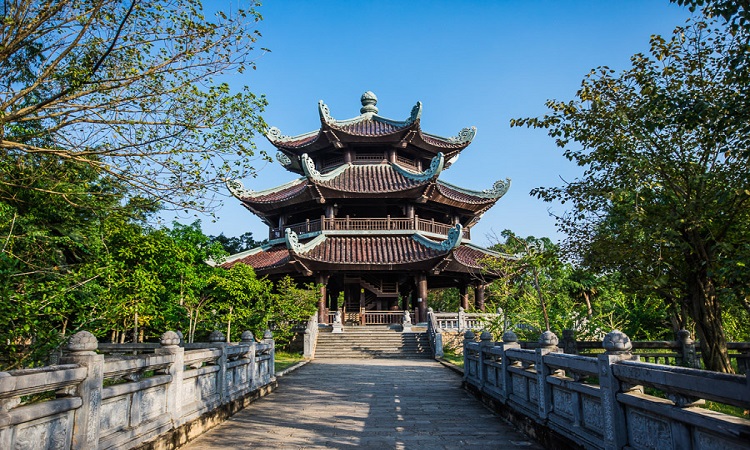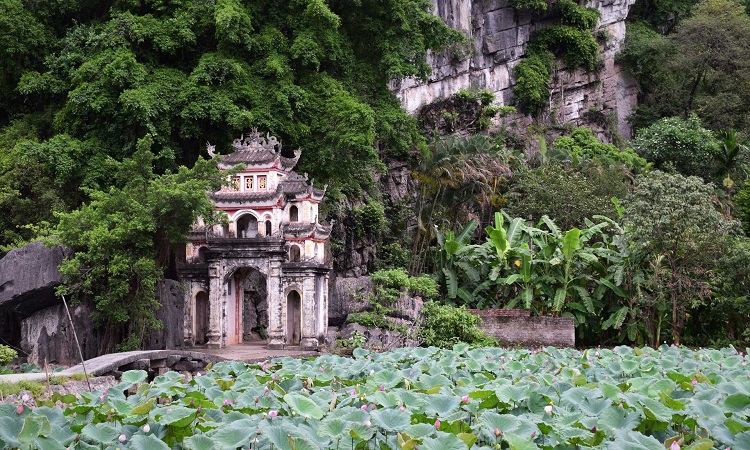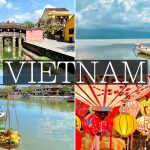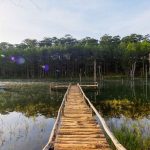
Ninh Binh: A detailed Travel Guide to Vietnam’s Hidden Gem
This post has all you need to know to plan your trip to one of the most fascinating places in Vietnam. Don’t miss it!!
It boasts of the most majestic and impressive natural landscapes in Southeast Asia, yet so many travelers overlook it.
Ninh Binh is a fascinating place where apart from an inspiring scenery, you have easy access to the most rural and authentic side Vietnam.

This travel guide of Ninh Binh is packed with the most up to date and reliable information to plan your trip and start making your itinerary. Let’s start!
How to get from Hanoi to Ninh Binh?
From Hanoi, you can reach Ninh Binh city by train, shuttle bus or book a Ninh Binh Day Tour.
- There are at least 3 southbound trains available (SE5, SE7, SE19)
- There are regular buses from Hanoi bus station ( Giap Bat’) with price around 70,000 vnd.
- Time duration around 2 hours

Best time to visit Ninh Binh
Almost any time of the year is good to visit Ninh Binh.
Like in all the north Vietnam, May to October in Ninh Binh is hot, humid and with high rainfall. The region can be specially vulnerable to typhoons during September. November to April months tend to be cooler and dry.
However, the rainy season is also when the rice fields are at their best vivid green, so there’s really a reason to visit all year around.

Getting around Ninh Binh
- Trang An Grottos (The Wolrd Natural Heritage site). The route will take visitors on a tour passing through 4 splendid limestone caves and 3 spiritual spots including Dia Linh Mountain in the shape of a giant Pen Tower erected in the middle of the river. Then back to the past while exploring a small temple dedicated to Thanh Cao Son, a national hero who had merit teaching the local people irrigation management to boost agricultural development under the reign of the 18th Hung King. Visitors will also learn more about the glorious history of the Tran Dynasty while exploring Vu Lam Royal Steps.
- Hoa Lu Ancient Capital we will visit 2 temples built on the ground of the old royal palace, one is dedicated to King Dinh Tien Hoang, and the other is to King Le Dai Hanh. The visit offers a chance to know more about part of the feudal dynasties and historical periods in Vietnamese history.
- Mua cave is not terribly impressive, but there are panoramic views from the peak above. A stone staircase beside the cave entrance zigzags through the karst (beware the goat droppings) and it’s almost 500 steps to a simple altar to Quan Am (the Goddess of Mercy). Look west for the Ngo Dong River winding through Tam Coc.
- Cuc Phuong National Park from Hanoi with Origin Vietnam. You will have chance to visit Vietnam’s biggest national park and probably the most crucial biodiversity areas in the country. It’s homes to countless species of flora and fauna. Visiting the park is a great opportunity to get a close look at Vietnam’s character and fees generated from tourism help protect the parks wildlife and improve the local community. The perfect time to visit from Nov to Jan.
- Van Long Nature Reserves. Van Long is one of the last wild refuges of the endangered Delacour’s langur, partly because the wetlands keep predators and poachers at bay. Van Long is 2km east of Tran Me, 23km from Ninh Binh along the road to Cuc Phuong.




